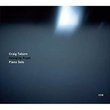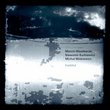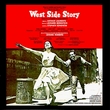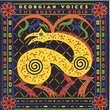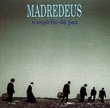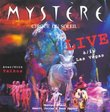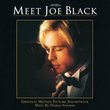| All Artists: Amina Alaoui Title: Arco Iris Members Wishing: 5 Total Copies: 0 Label: ECM Records Original Release Date: 1/1/2011 Re-Release Date: 6/28/2011 Genres: Jazz, Pop Style: Number of Discs: 1 SwapaCD Credits: 1 UPC: 602527637587 |
Search - Amina Alaoui :: Arco Iris
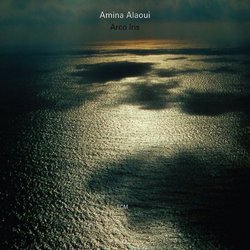 | Amina Alaoui Arco Iris Genres: Jazz, Pop
Following her outstanding ECM debut performance as the lyrical voice of Jon Balke's Siwan recording (released June 2009) Amina Alaoui explores a rainbow of musical possibilities on her own Arco Iris. It is an emotionally p... more » |
Larger Image |
CD Details
Synopsis
Product Description
Following her outstanding ECM debut performance as the lyrical voice of Jon Balke's Siwan recording (released June 2009) Amina Alaoui explores a rainbow of musical possibilities on her own Arco Iris. It is an emotionally powerful album that soars through related idioms. This time, says Alaoui in her liner notes, there is "no need to discuss the origins of fado, flamenco or Al Andalusi" for the music itself investigates the common crucible of the styles: Amina's delivery, and the performances of her superb ensemble, make the interconnections of the genres self-evident. Yet as she also points out, "you must first have assimilated your own roots, in order to absorb the culture of the other..." Historical awareness, study and discernment are essential but more is needed: "I am an artist of the present. I abstain from simply copying the styles of the past." Singer, composer, poet and scholar of distinction, Amina Alaoui was born in Fez and originally schooled in the Moroccan Gharnati tradition, which remains a central reference in her work. She also studied European classical music from childhood onwards. While based in Paris in the mid-1980s she explored medieval chant with Henri Agnel and Persian song with Djallal Akhbari, interested, as ever, in the points of contact between the traditions. Alaoui has been the recipient of many awards including the Algerian Prix d'Interprétation du festival de Musique Arabo-andalouse d'Oran, Morocco's Prix d'Excellence au Festrival Ghanati d'Oijda, and the Cairo Opera's Prix d'Honneur du Festival de Musique Classique Arabe. She is also a laureate of the Villa Medicis Hors les Murs where her musicological research into the confluence of musical streams led ultimately to the work that has become Arco Iris. On this disc, recorded in April 2010 in the recital room of Lugano's Audiorium RSI, with Manfred Eicher producing, Amina is flanked by her truly international ensemble: violinist Saïfallah Ben Abderrazak and oud player Sofiane Negra are from Tunisia: Negra has played with Alaoui for many years and has much experience also of cross-cultural collaboration - working, for instance, with flamenco singer Ines Bacan and with many jazz players. Abderrazak's interesting resumé includes work as a physicist specializing in acoustics and sound principles as well as membership of the Symphonic Orchestra of Tunis. Guitarist José Luis Montón from Barcelona has a following amongst flamenco adherents worldwide (and an ECM solo album of his own is in preparation). Mandolinist Eduardo Miranda was born in Brazil, has lived the last two decades in Portugal, and links choro and fado styles through a vocabulary influenced by jazz. The group's youngest member, Idriss Agnel, son of Amina Alaoui, studied music at Maîtrise Notre Dame de Paris from the age of seven. He is meanwhile renowned as a multi-instrumentalist, contributing here deft percussion and (on one track) electric guitar. The sparkling interchanges between the instrumentalists and the rapport of each of them with Alaoui make for exciting listening throughout Arco Iris. The songs are from many sources, and the texts and some of the melodies span a thousand years. Amina sets mystic poems by St. Teresa of Avila and by 11th century king of Seville Al Mutamid Ibn Abbad, and nature poetry of Ibn Khafaja. ("Nothing is more beautiful, O Andalusians / Than your luxuriant orchards / Gardens, shadow and rivers / And fountains of crystal."). There is 20th century fado from the pen of Antonio de Sousa Freitas and the well-known 15th century text "Las Morillas de Jaén" which Amina puts to her own music (a very different rendition can be heard on the Garbarek/Hilliard Officium Novum set). The album concludes with the title track, Amina's song of praise to "Arco Iris", the rainbow: "Sun and rain in an embrace (...) bridging the firmament", while "Sounds/ Of light and colour/ Weave in harmony". CD booklet includes liner notes by Amina Alaoui in French and English, all song texts in English translation, and photos from the recording session.
Similar CDs
| Craig Taborn Avenging Angel Genres: Jazz, Pop Label: ECM Records | |
| Marcin Wasilewski Trio, Marcin Wasilewski, Slawomir Kurkiewicz Faithful Genres: Jazz, Pop Label: ECM Records | |
| Gillian Welch The Harrow & the Harvest Genres: Folk, Pop, Rock Label: Acony Records | |
Similarly Requested CDs
| Rustavi Choir Georgian Voices Genres: International Music, Pop Label: Nonesuch | |
| Earl Klugh Solo Guitar Genres: Jazz, Pop Label: Warner Bros / Wea | |

 Track Listings (12) - Disc #1
Track Listings (12) - Disc #1